🧳 Projects
ANOMALENS: Identification of Visual Anomalies in the Industrial Sector
- Description: I have implemented an industrial image anomaly identification system that uses transfer learning and a feature autoencoder to detect multi-scale defects in feature space, not just pixels. The architecture includes image preprocessing, ResNet50 feature maps, autoencoder, anomaly mapping, error scoring, defect classification, and action triggering.
-
Link: This projects is private Live Demo - Highlights:
- Accuracy (86%): Reduces false alarms, saving time and costs
- Recall (82%): Detects real defects early, reducing failure rate
- F1 Score (0.83): Balances accuracy and recall for reliable decisions
- Downtime Reduction: Prevents cascading failures from undetected anomalies
- Images:
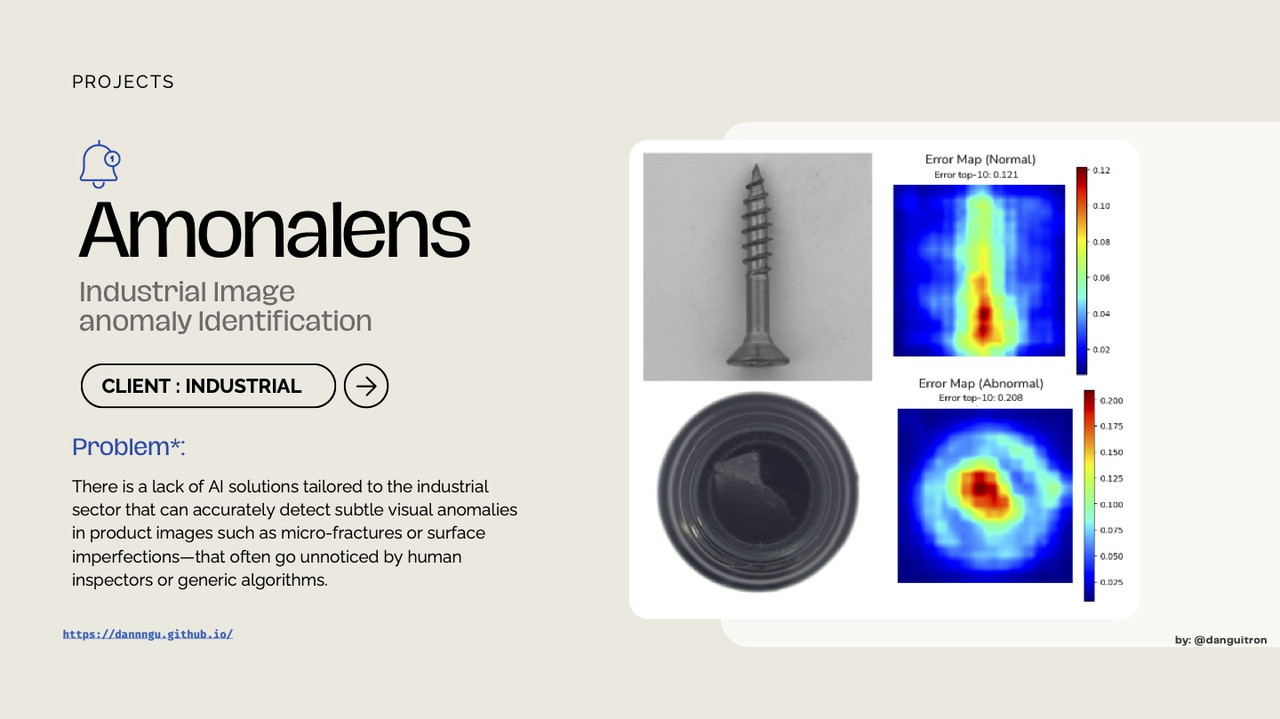
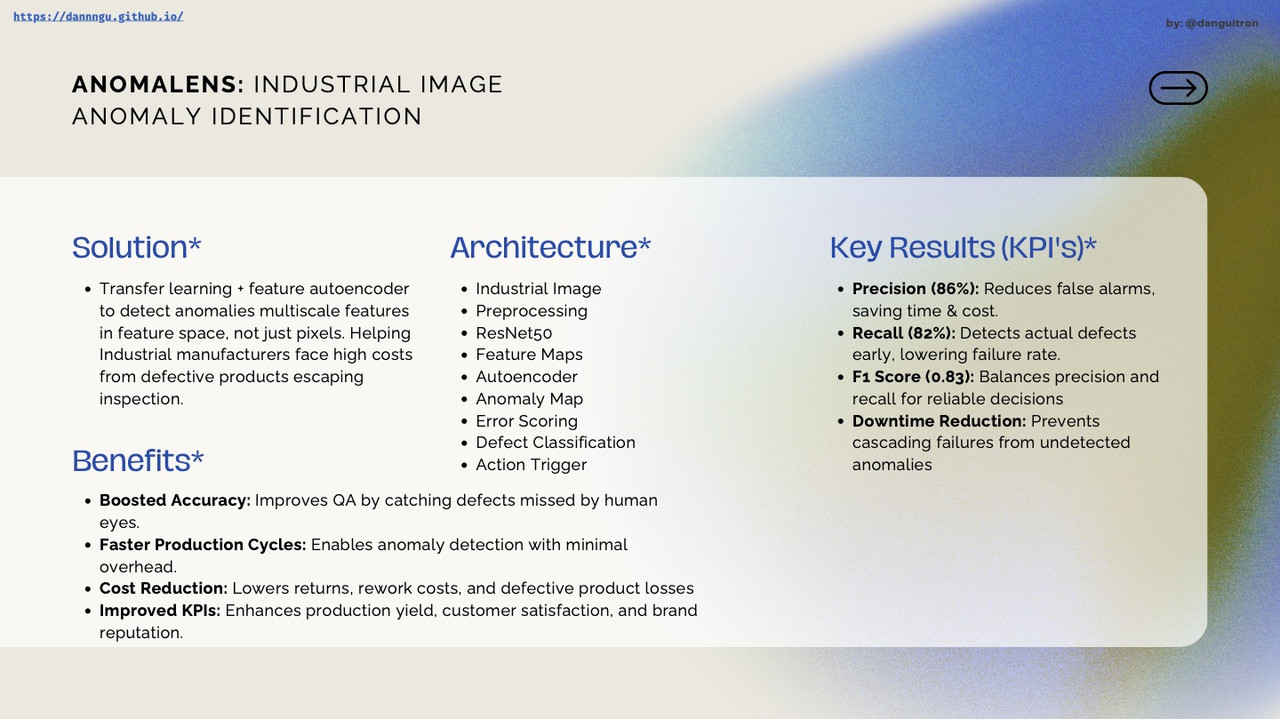
FRAUD: Detection of Fraudulent Transactions in the Financial Sector
- Description: I have developed a scalable fraud detection pipeline for financial services that utilizes advanced Machine Learning (ML) algorithms such as Logistic Regression and XGBoost. This solution is wrapped in our custom GitDS-flow framework for operational efficiency, enabling anomaly detection, audit support and agile deployment.
-
Link: View Code on GitHub Live Demo - Highlights:
- Recall (99%): Captures real fraud cases with minimal false negatives.
- Reproducibility: Versioned and traceable pipeline for auditing and scaling
- Comparison of Experiments: Stakeholders can effortlessly review model evolution.
- Images:
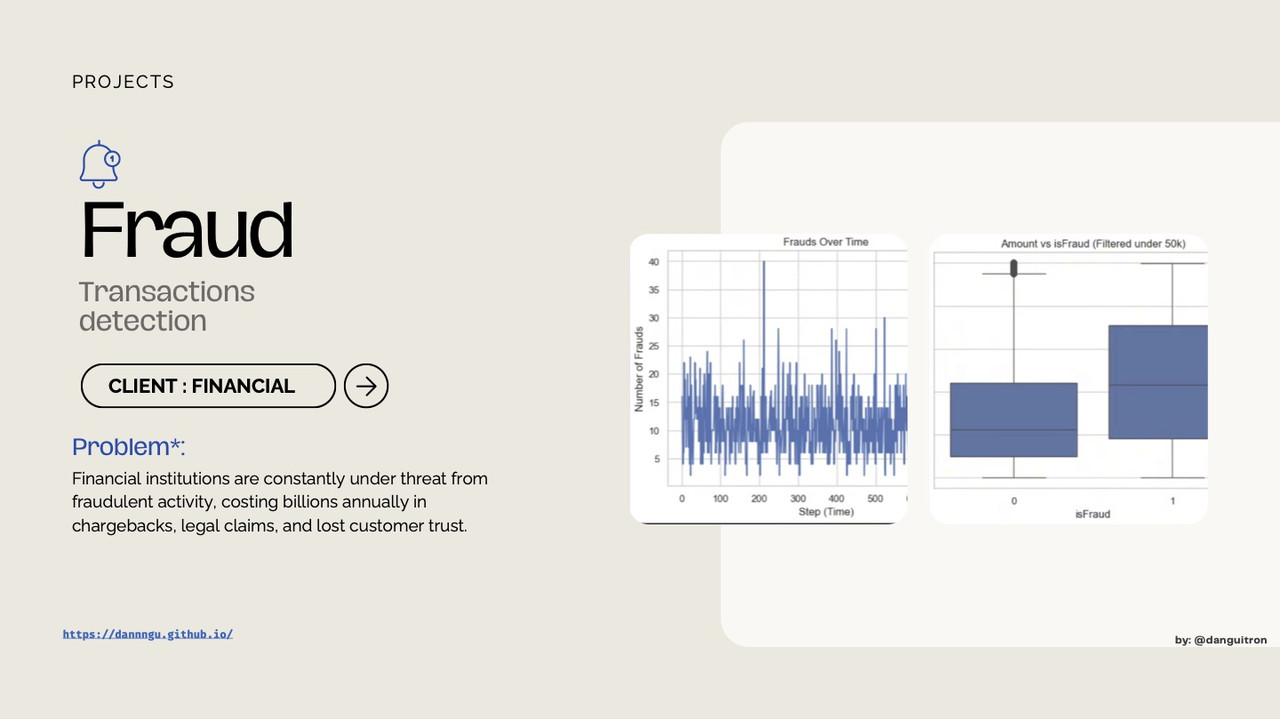
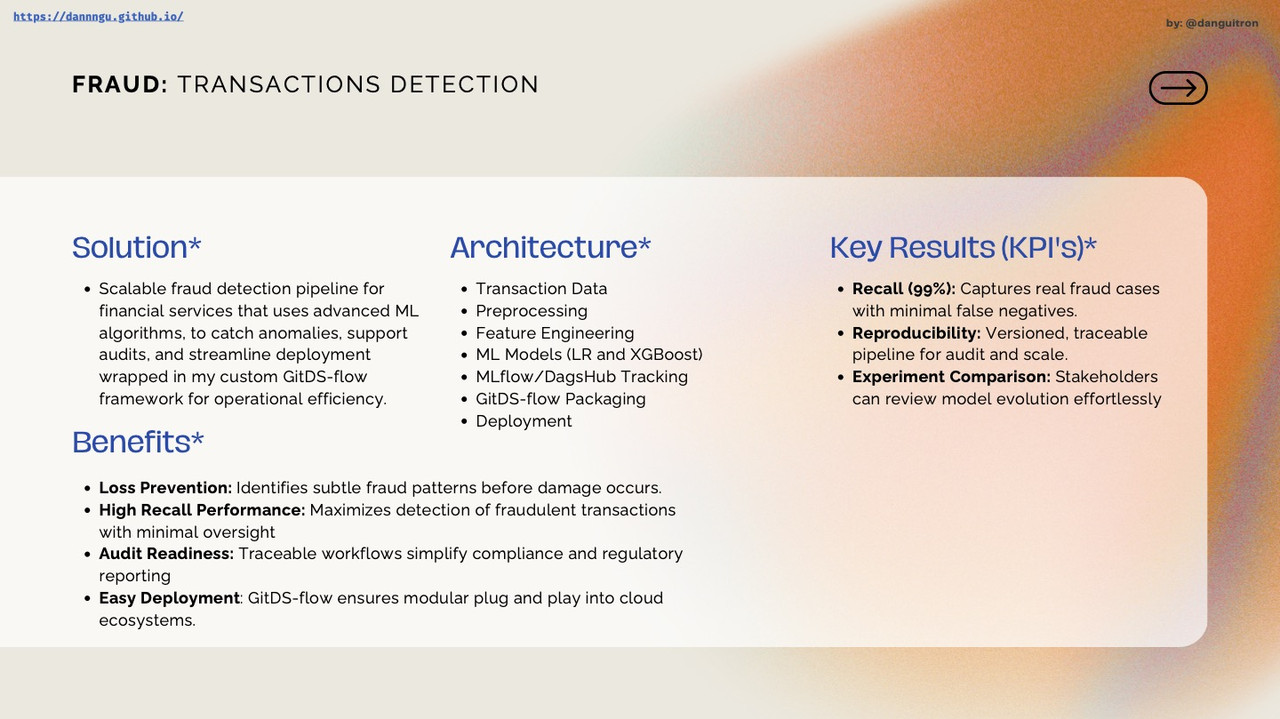
DESEASE: Diagnostic Support in the Health Sector
- Description: I have developed a deep learning solution using a VGG16-based CNN model trained on labeled medical images. This system, with 87% accuracy, can be deployed as a web application, allowing physicians or patients to upload images and receive instant predictive feedback. The architecture includes Data Preprocessing, VGG16 Feature Extraction, Classification, and management with MLflow/DVC and GitDS-flow for scalable deployment on AWS.
-
Link: View Code on GitHub Live Demo - Highlights:
- Achieved ~80% accuracy using a VGG16-based convolutional neural network.
- Integrated MLflow for experiment tracking and DVC for data and model version control.
- Followed object-oriented programming (OOP) principles to ensure modular, reusable, and maintainable code
- Deployed workflows to AWS for scalable execution and storage.
- Images:
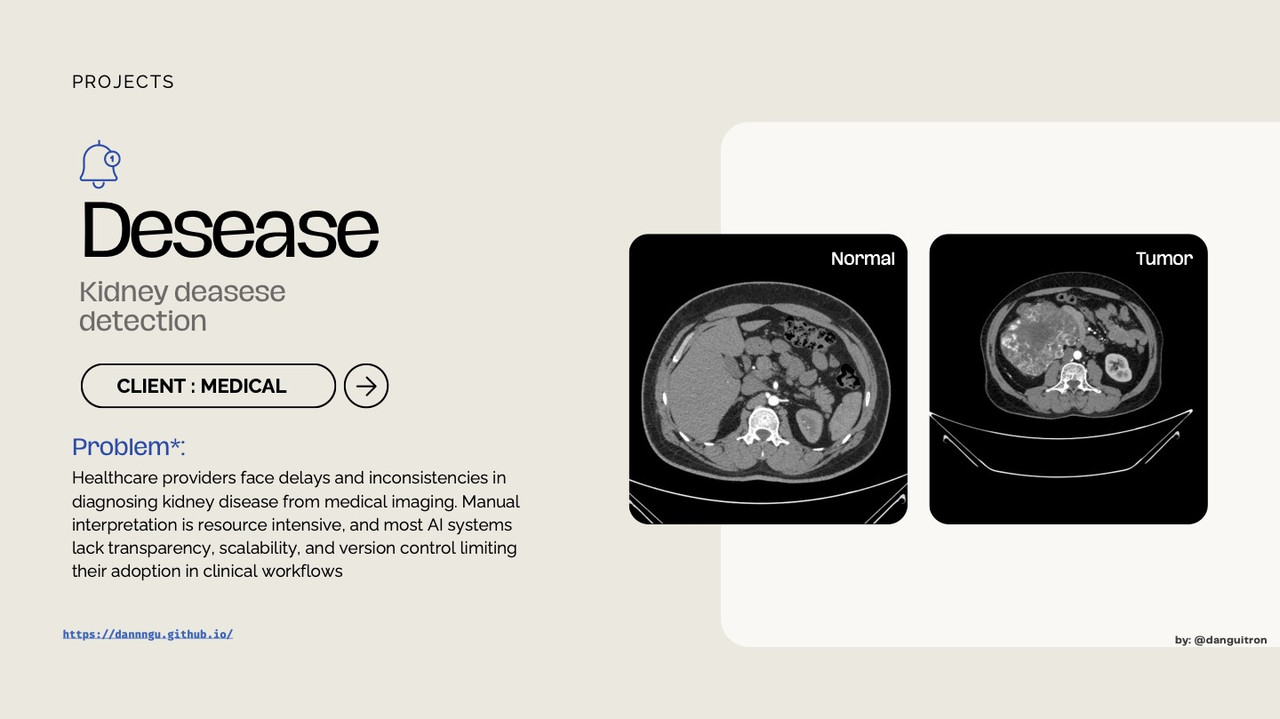
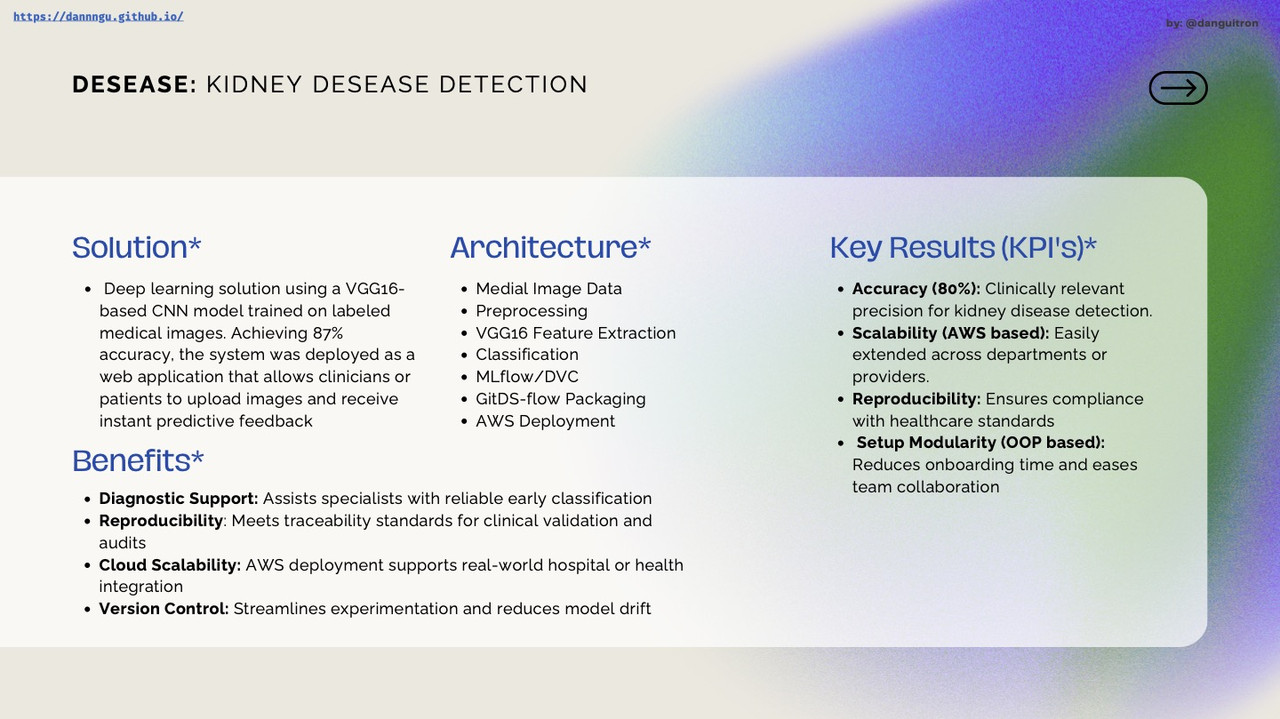
TELECOM: Customer Churn Prediction
- Description: I have developed a predictive churn model for telecommunications companies using LightGBM. This model identifies high-risk customers, streamlines reproducibility and reveals key segments for customized retention strategies, generating significant annual savings. The architecture includes Customer Data Preprocessing, Feature Engineering, ML Modeling (LightGBM), Segmentation Analysis and Retention Strategy Deployment.
-
Link: View Code on GitHub Live Demo - Highlights:
- Accuracy (86%): Reliable leak identification.
- AUC-ROC (93%): High classification power to separate at-risk customers
- Setup Time (-40%): Faster start-up using Cookiecutter framework
- Annual Savings ($2.3M): Tangible impact through retention efforts
- Images:
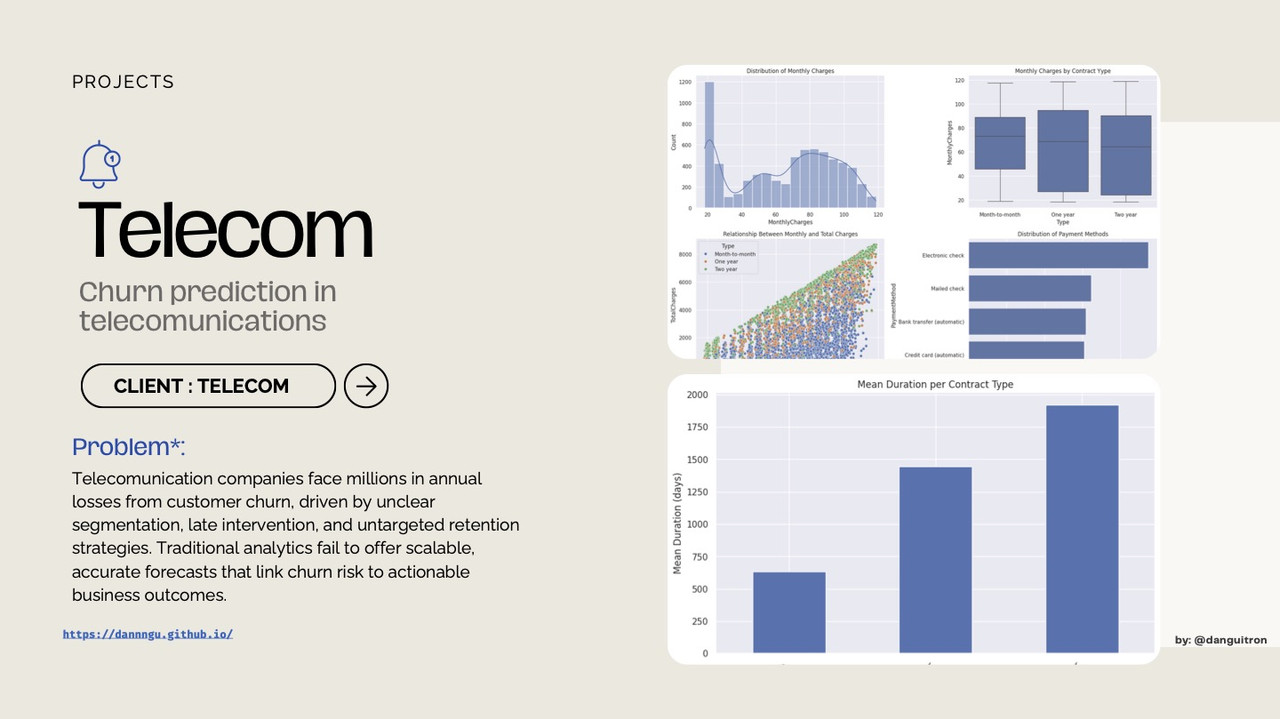
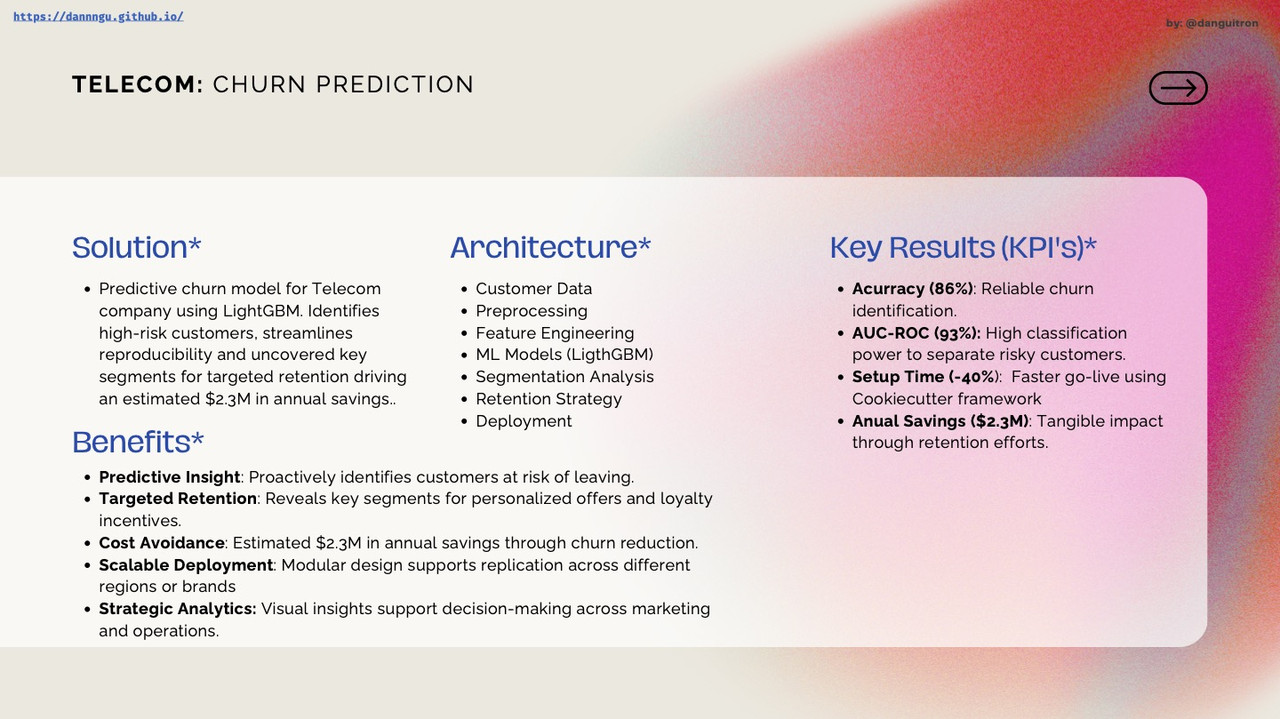
Schizophrenia Detection with Machine Learning
- Description: Designed a machine learning pipeline to detect schizophrenia from clinical data, aiming to support early diagnosis and enhance treatment planning. Focused on model performance, production-readiness, and reproducibility.
- Technologies: Python, Scikit-learn, Pandas, Seaborn, Matplotlib, Cookiecutter, Jupyter Notebooks, NumPy.
-
Link: View Code on GitHub Live Demo - Highlights:
- Achieved a 75% F1 score, outperforming baseline models by 15% and providing a robust tool for early-stage schizophrenia detection.
- Deployed the model into a production environment, enabling integration with clinical workflows for real-world evaluation.
- Cut deployment setup time by 40% using Cookiecutter templates, streamlining collaboration and ensuring consistent project structure.
- Screenshot:
